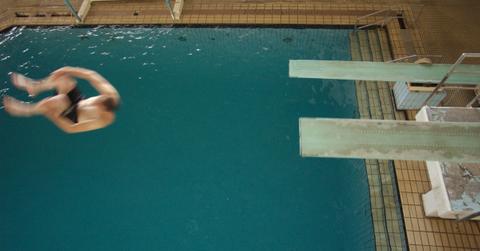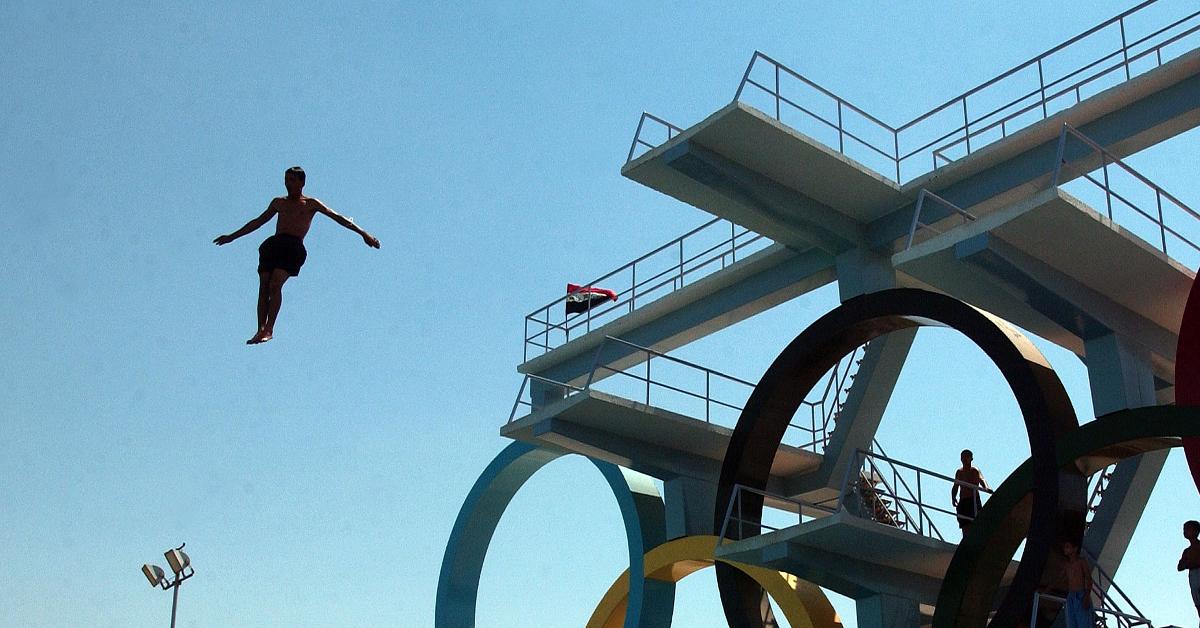Are Olympic Diving Pools Really as Deep as the Length of a School Bus?
Published July 30 2021, 4:48 p.m. ET

Seeing the culmination of a lifetime dedicated to a specific athletic pursuit is a truly magical thing. While the winners of said events are the ones that get all of the glory, there are tons of incredible athletes from all over the world who are putting their training, grit, and determination on display at the Olympic games.
And because these human beings are operating at such high levels, special procedures, rules, and stipulations need to be put in place in order to ensure their safety. Take Olympic divers for instance. They're hitting the water at such high speeds that they're going to plummet way deeper than your uncle after a few beers on Memorial Day. So how deep do the diving pools have to be for pro divers?

How deep is the Olympic diving pool?
Pop Sugar writer and former competitive swimmer Emily Weaver has discussed the "astonishingly difficult" nature of aquatic sporting events, but even without context, it's pretty easy to see how rigorously divers train. They explode off of the diving board and then contort in a variety of controlled motions before spearing straight into the pool.
Weaver writes that there are specific guidelines that must be adhered to for diving events to prevent injury to the athletes jumping into the water: "Because springboard and platform diving take place in the same pool, the country hosting the Olympics must abide by FINA's recommended minimum depth for 10-meter platform diving, which is five meters, or 16 feet, deep."
Because divers are jumping from a height of around 32 feet, which is longer than most school buses (for context school buses range from 20-45 feet in length), they need ample water room to ensure they don't crash into the bottom of the pool and injure themselves. Some diving pools can be deeper than 10 meters, but that's the minimum requirement for diving and springboard diving events.
How deep are Olympic swimming pools, then?
The pools used for competitive swimming events don't need to adhere to the same requirements as the water is typically being used to swim in "straight lines." An Olympic-sized regulation swimming pool only needs to be 3 meters deep (9.8 feet) and 50 meters (164 feet) long.
"Why are Olympic divers so ripped?"
It's a question that a lot of folks who watch the Olympics ask, and again, it has to do with several factors. Diving is extremely taxing on the body, and efficient precise movements are necessary to succeed at the highest levels of the sport.
Redditor intangible-tangerine gives a pretty good breakdown of why so much athleticism and training is needed for successful professional-grade dives: "They need a lot of strength and agility to perform dives, as they plummet from the diving board there are g-forces acting on them and they have to battle against that as they execute their skills. An Olympic diver will reach speeds over 50 mph during a dive. As they hold a position the g-forces are pulling against them all the time."
Let's not forget that Hollywood super-fit action star Jason Statham used to be a pro-diver as well. Here are some clips of him in action below, with some hilarious Ozzy Man commentary in case you were interested.